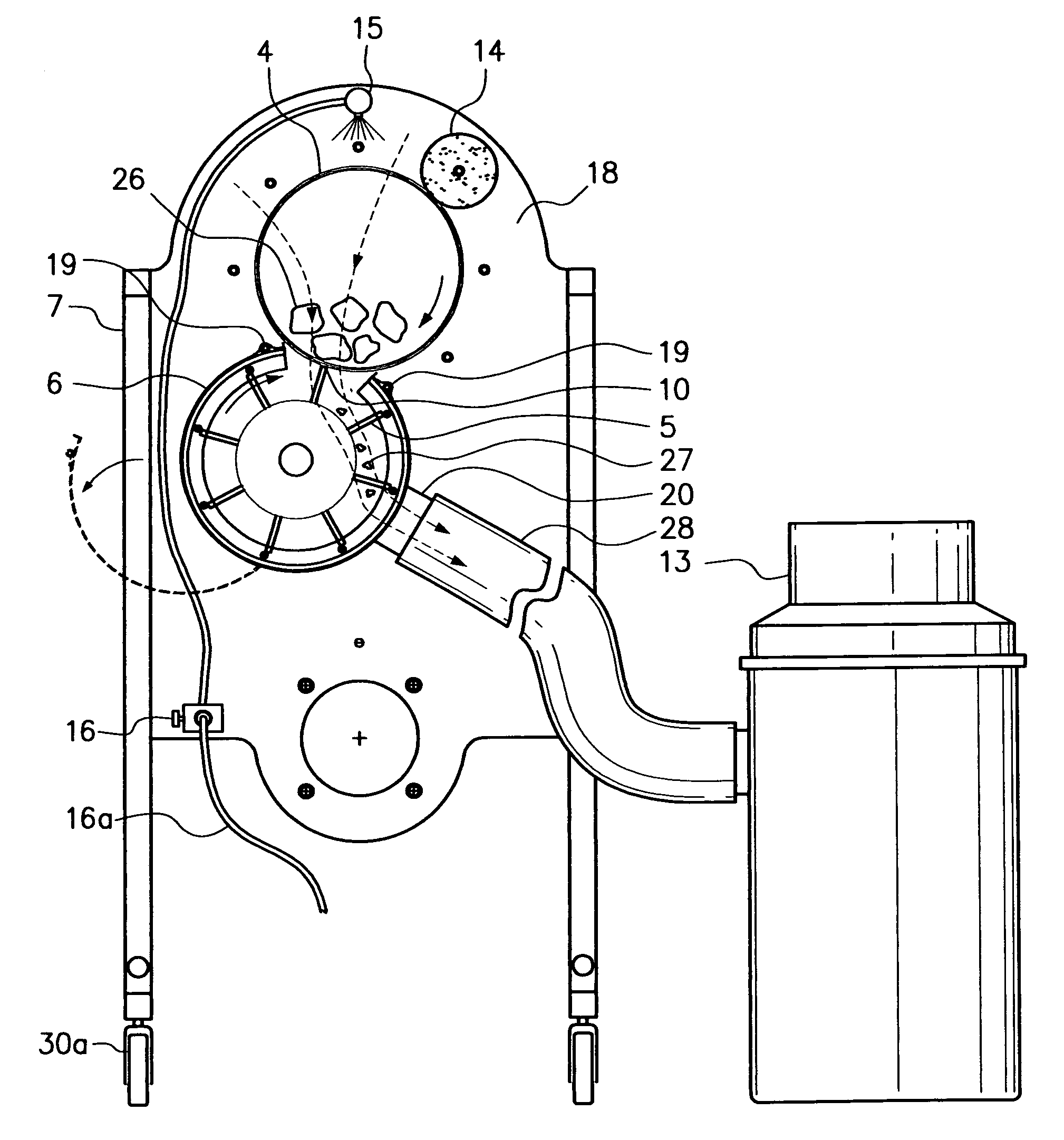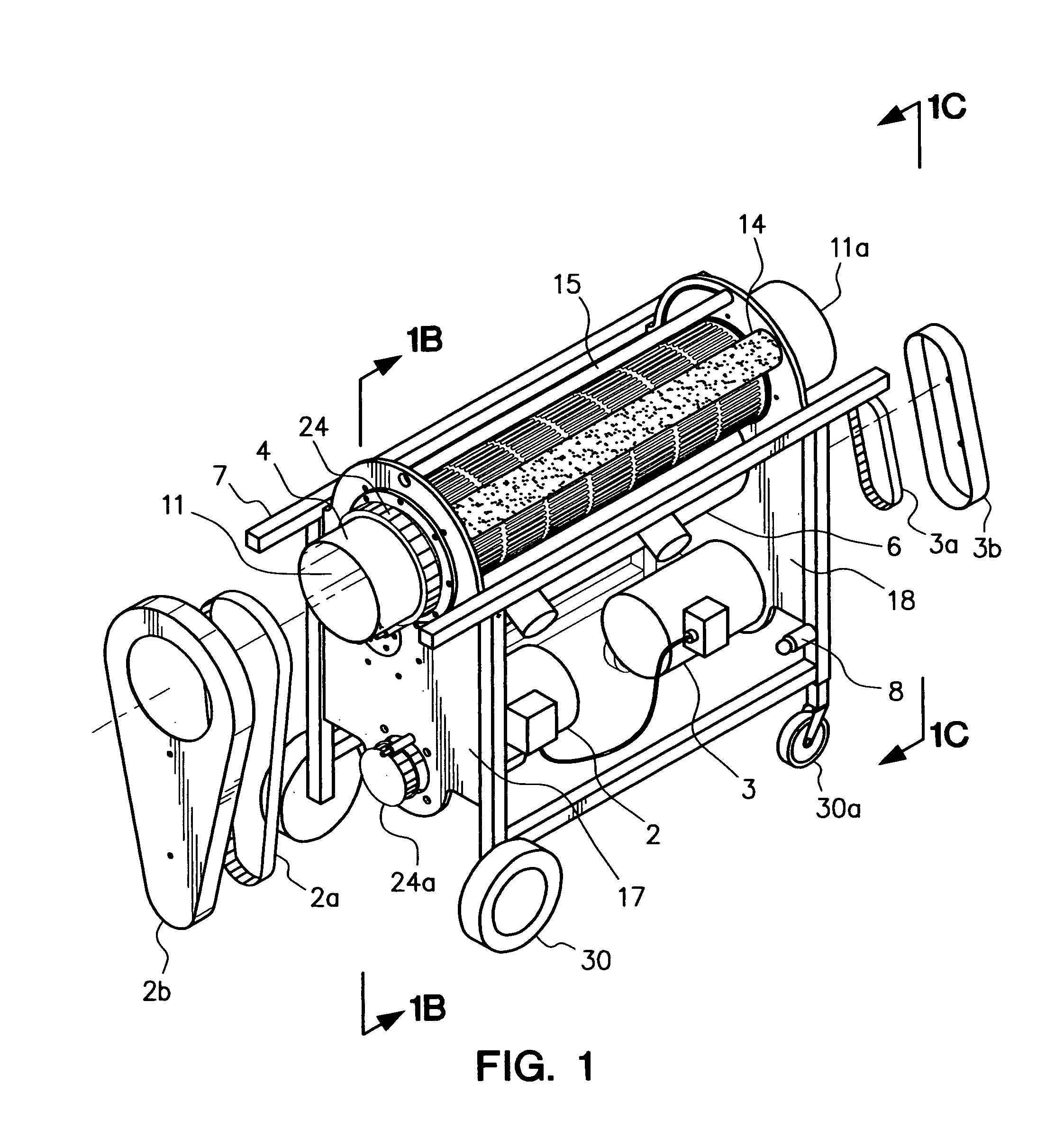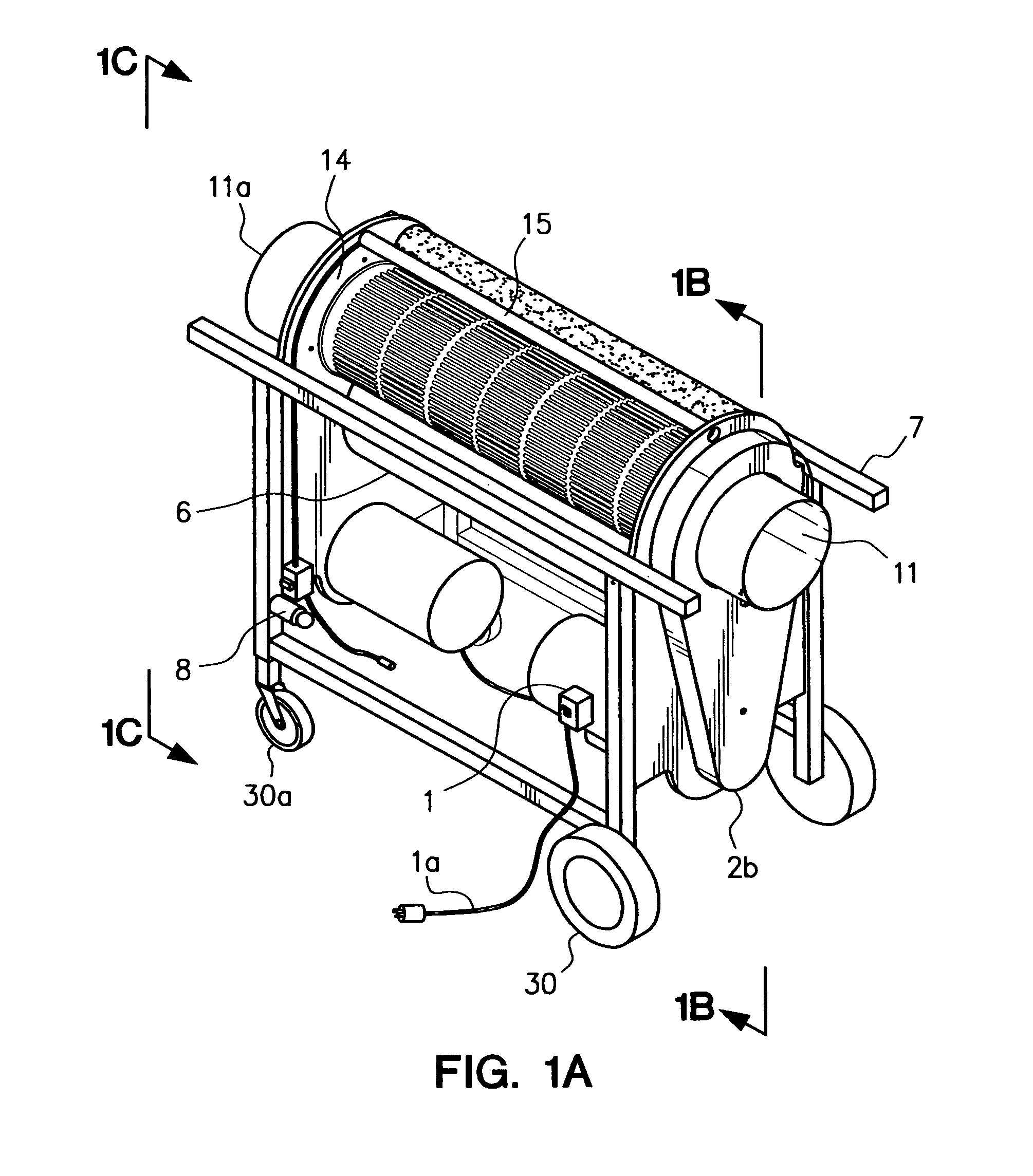Method and apparatus for trimming buds and flowers
a technology for cutting and flowers, applied in the field of plant cutting, can solve the problems of flower buds, chaff, falling to the collection bin, still requires significant hand labor, etc., and achieve the effects of facilitating the flow and processing of plant material, enhancing the shearing force of plant material, and more precise adjustment of cutting interfa
- Summary
- Abstract
- Description
- Claims
- Application Information
AI Technical Summary
Benefits of technology
Problems solved by technology
Method used
Image
Examples
Embodiment Construction
[0055]Referring more specifically to the drawings, for illustrative purposes the present invention is embodied in the apparatus generally shown in FIG. 1 through FIG. 11D.
[0056]The example of a slotted drum 4 in FIG. 3 through FIG. 3C shows a ⅛ inch thick tube 4a that has ground bearing surfaces 4b and 4c on either end and has horizontal rows 4d with seven slots 12 that are 5 / 16 inches wide by 4 inches long and that can be differently aligned as shown in FIG. 3A and FIG. 3B. However, one skilled in the art would appreciate that similar slotted drums with a different number of slots per horizontal row and / or with slots of different widths and lengths and / or a drum of a different thickness could be used.
[0057]The example of a cutting reel 5 in FIG. 4 shows a “lawn mower” type of cutter with eight blades 5a with 90 degrees of end to end blade rotation. However, one skilled in the art would appreciate that similar cutting reels or equivalent implements with either a different number of ...
PUM
 Login to View More
Login to View More Abstract
Description
Claims
Application Information
 Login to View More
Login to View More - R&D
- Intellectual Property
- Life Sciences
- Materials
- Tech Scout
- Unparalleled Data Quality
- Higher Quality Content
- 60% Fewer Hallucinations
Browse by: Latest US Patents, China's latest patents, Technical Efficacy Thesaurus, Application Domain, Technology Topic, Popular Technical Reports.
© 2025 PatSnap. All rights reserved.Legal|Privacy policy|Modern Slavery Act Transparency Statement|Sitemap|About US| Contact US: help@patsnap.com



